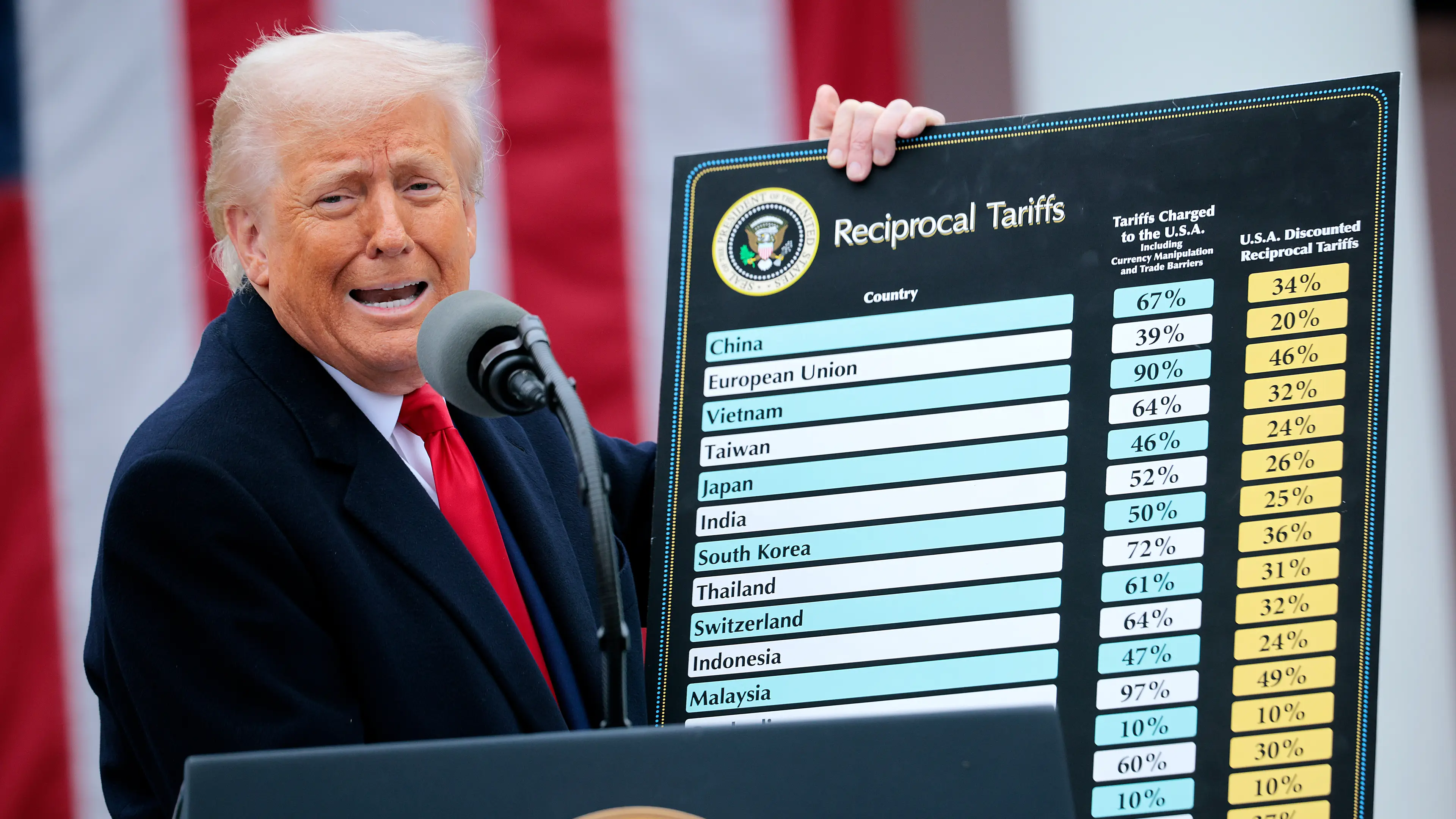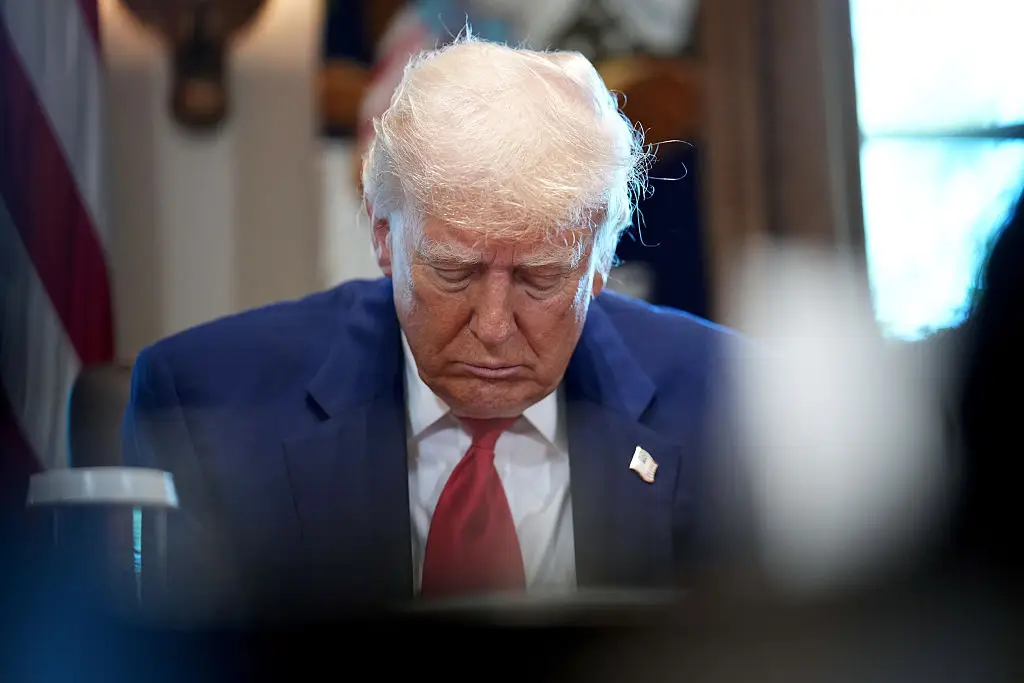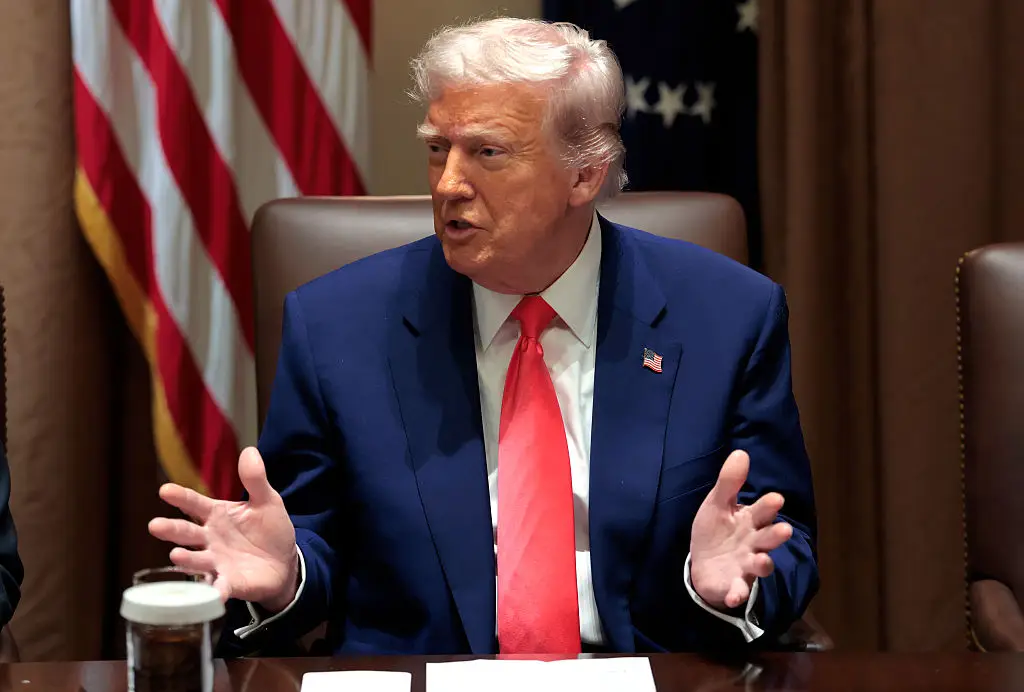
It might feel like a lifetime ago but it was only last month that Donald Trump introduced his 'Liberation Day' tariffs.
On 2 April, he welcomed journalists to the White House so that he could explain his plans to impose significant tariffs on almost every country in the world.
Naturally, this had a pretty catastrophic impact, nearly kickstarting a trade war with China with each country steadily increasing tariffs on each other until they were finally able to come to an agreement.
While this left the 47th president thinking that he 'rules the world', it seems that he can't get everything he wants after his tariff plans were dealt a major blow by a federal court earlier this week.
Advert
On Wednesday (28 May), a three-judge panel at the New York-based Court of International Trade blocked Trump's sweeping global tariffs.

The court wrote: "The Worldwide and Retaliatory Tariff Orders exceed any authority granted to the President by IEEPA to regulate importation by means of tariffs."
The White House has since blasted the decision, suggesting that 'unelected judges' have no right to weigh in on Trump's actions, which he believes were necessary to address the 'national emergency' of the withering economy in the US.
White House spokesman Kush Desai said: "Foreign countries' nonreciprocal treatment of the Unites States has fuelled America's historic and persistent trade deficits. These deficits have created a national emergency that has decimated American communities, left our workers behind, and weakened our defence industrial base - facts that the court did not dispute.
"It is not for unelected judges to decide how to properly address a national emergency. President Trump pledged to put America First, and the Administration is committed to using every lever of executive power to address this crisis and restore American Greatness."

The federal trade court ruled that the president's actions violated the power of purse given to Congress under the constitution, as part of the two cases that were presented by Democratic-led states and small businesses who claim to have suffered from Trump's decision and argued that he was wrongfully invoking an emergency law in order to justify his actions.
The court wrote: "The question in the two cases before the court is whether the International Emergency Economic Powers Act of 1977 ('IEEPA') delegates these powers to the president in the form of authority to impose unlimited tariffs on goods from nearly every country in the world,' the three-judge panel wrote in an unsigned opinion.
"The court does not read IEEPA to confer such unbounded authority and sets aside the challenged tariffs imposed thereunder."
Trump has not yet commented on the ruling.
Topics: Donald Trump, Politics
